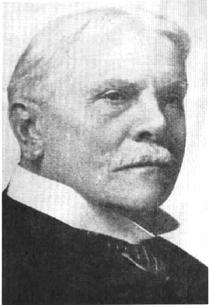
From a Baptist background, the ministers always explained the "only" or “merely” aspect of the Lord’s Supper. “This is MERELY a symbol of the forgiveness of sins.” It was only described in the negative:
Not Catholic. One begins to wonder if this tradition is so minor, so
mere, why do we do it at all?
This “mere” idea comes from Zwingli and dominates the sacramental theology of Baptists and Presbyterians, Reformed and otherwise. Yet, Calvin’s mind in Soteriology is acknowledged as far superior. Why not entertain some of his thoughts on the Lord’s Supper?
Turns out Calvin’s Institutes find little “mere” or “minor” in the symbol of Christ‘s blood and body. Some selections:
“As bread nourishes, sustains, and protects our bodily life, so the body of Christ is the only food to invigorate and keep alive the soul. When we behold wine set forth as a symbol of blood, we must think that such use as wine serves to the body, the same spiritually bestowed by the blood of Christ.”
Calvin invites contemplation on the “similitude” of bread and wine to the “giving daily” of the benefits of Christ. I find Psalm 104:15 lists both and their function:
Bread:
“Bread to strengthen man's heart” (ESV)
I may surmise that Christ continually is to be our strength.
Wine:
“wine maketh glad the heart of man, making the face brighter than oil” (JPS)
Christ is to be the gladness of our heart, making our face beam more than oil.
While Christ’s sacrifice for sin was once for all, the Lord’s Supper reminds us of the continual nature in which Christ is the source of our strength and our joy. Our sustaining Providence and the source of our delight. Thus, while we may see baptism as our death and new life with Christ, done once, the Lord’s Supper is the continual coming to Christ for strength and joy. Calvin does not leave the symbolism to the past grace of Christ, but the present and future. We are continually given the benefits of Christ’s “wonderous exchange.” What does Calvin mean by this phrase? He tells us:
“the wonderous exchange…having become with us the Son of Man, He made us with Himself sons of God. By His own descent to the earth, He prepared our ascent to heaven. Having received our mortality, He has bestowed on us His immortality. Having under-taken our weakness, He has made us strong in His strength. Having submitted to our poverty, He has transferred to us His riches. Having taken upon Himself the burden of unrighteousness with which we were oppressed, He has clothed us with His righteousness.”
In the Lord’s Supper, perhaps we ask the wrong question of “Does the bread and wine become Christ?” Perhaps we should ask “Does Christ become our bread and wine?” Our strength and delight.


























.jpg)



















